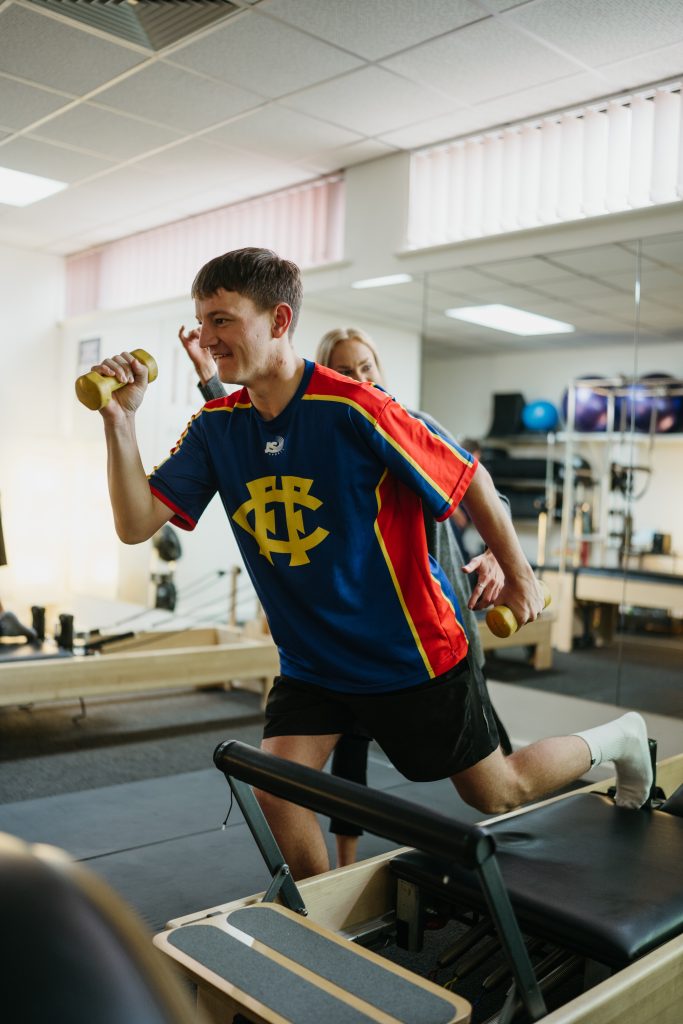How to Optimise Performance and Enjoyment for our Youth
Strength training has become increasingly popular among youth athletes in recent years. The allure of enhanced performance and reduced risk of injury has led many young athletes and their parents to embrace this form of exercise. However, like any training regimen, strength training comes with both benefits and risks for young athletes. In this blog post, we will explore the advantages and potential drawbacks of strength training for the younger sports enthusiasts.
The Benefits of Strength Training for Youth Athletes
- Improved Performance: Proper strength training can enhance overall athletic performance. It helps young athletes develop stronger muscles, improved endurance, and enhanced coordination, leading to better sports performance on the field or court.
- Injury Prevention: Strengthening the muscles and connective tissues can help reduce the risk of injuries among young athletes. By creating a stable and robust musculoskeletal system, strength training supports joints and ligaments, minimizing the chances of sprains, strains, and other common sports-related injuries.
- Enhanced Bone Density: Strength training during the growing years can contribute to improved bone density, which is crucial for long-term bone health and reduces the risk of osteoporosis later in life.
- Building Confidence: As young athletes see improvements in their strength and physical abilities, their self-confidence grows. This newfound confidence can positively impact their performance in sports and other areas of life.
- Developing Healthy Habits: Engaging in structured strength training can instil a sense of discipline and commitment to a healthy lifestyle in young athletes. It encourages regular exercise and promotes a positive attitude toward fitness.
The Risks and Considerations of Strength Training for Youth Athletes
- Potential for Overtraining: Youth athletes are still growing, and excessive or improper strength training can lead to overuse injuries and burnout. It is essential to follow age-appropriate training guidelines and avoid excessive training volume.
- Risk of Injury with Improper Form: Using incorrect techniques during strength training can lead to injuries. It is crucial for young athletes to work with qualified and experienced professionals who can ensure proper form and provide appropriate guidance.
- Impact on Growth Plates: Youth athletes have open growth plates, which are areas of developing cartilage at the ends of long bones. Excessive stress on these growth plates through improper training can lead to growth plate injuries.
- Psychological Pressure: The pressure to perform at higher levels and achieve specific strength goals can lead to stress and anxiety in young athletes. It is essential to create a positive and supportive training environment to prevent emotional burnout.
- Early Specialisation: Focusing solely on strength training and neglecting other aspects of athletic development can lead to early specialisation, which may limit overall sports skills and lead to imbalances.
Strength training offers numerous benefits for youth athletes, such as improved performance, injury prevention, and enhanced bone density. However, there are also potential risks, including the potential for overtraining, injury with improper form, and psychological pressure. To maximise the advantages and minimise the risks, it is crucial to adopt age-appropriate and well-structured strength training programs under the guidance of qualified professionals.
Remember that strength training should complement a well-rounded sports development program that includes skill training, rest, and recovery. Prioritising the young athletes’ well-being, safety, and enjoyment of sports is paramount to ensure that strength training becomes a positive and enriching aspect of their athletic journey. By striking a balance between structured strength training and other sports activities, young athletes can thrive both on and off the field.

Prevent injury and improve performance by enquiring with us at Pivotal Physiotherapy & Pilates.
~ Jacob Spencer, Physiotherapist